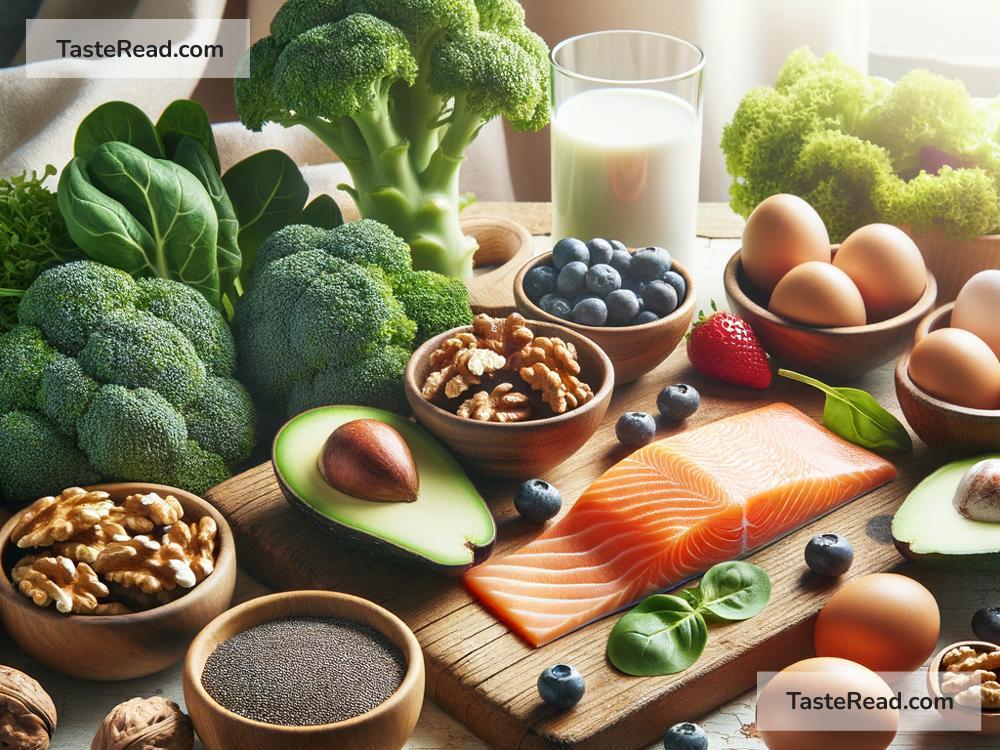Foods That Support Hormonal Balance: Eating Your Way to Wellness
Hormones play a huge role in how our bodies work every day. They manage nearly everything, from our energy levels and mood to digestion, sleep, and even skin health. When hormones are out of balance, you may feel tired, anxious, or irritated, or notice things like weight gain or acne. The good news is, food can help! Eating the right kinds of foods can support your body and keep your hormones functioning properly.
In this blog, we’ll explore some easy-to-find foods that promote hormonal balance. Whether you’re looking to boost your energy, improve your mood, or ease symptoms of hormonal changes, these foods could be your answer.
Why Hormonal Balance Matters
Hormones are chemical messengers produced by glands in your body’s endocrine system (like the thyroid, pancreas, or adrenal glands). They regulate everything from growth and metabolism to reproduction and mood. A hormonal imbalance can occur due to things like stress, poor diet, sleep issues, or age-related changes.
By choosing foods that nourish your body and reduce inflammation, you can help regulate your hormones naturally. So, what should you be eating? Let’s dive in!
1. Healthy Fats for Hormone Health
Fats are not your enemy—they’re essential for hormone production. Your body needs healthy fats to produce and regulate hormones like estrogen, progesterone, and testosterone.
- Avocados: Packed with monounsaturated fats, avocados help reduce inflammation and boost insulin sensitivity, which is key for hormonal balance.
- Coconut oil: This natural fat supports thyroid health and offers quick energy for your body. It’s also antibacterial and antiviral.
- Nuts and seeds: Almonds, walnuts, chia seeds, and flaxseeds are great options. They contain omega-3 fatty acids, which help reduce stress hormones and improve mood.
2. Fiber-Rich Foods for Detoxification
Fiber helps your body get rid of excess hormones that are no longer needed, like leftover estrogen, which can throw your hormone levels off balance if it sticks around.
- Leafy greens: Spinach, kale, and Swiss chard are rich in fiber and packed with nutrients.
- Whole grains: Brown rice, quinoa, and oats help stabilize blood sugar levels, which keeps stress hormones like cortisol in check.
- Vegetables like broccoli and cauliflower: These cruciferous veggies contain compounds that support the liver, helping it clear out excess hormones and toxins.
3. Protein for Hormone Production
Hormones like insulin and growth hormones need protein to work properly. Protein-rich foods also help keep you full longer and stabilize blood sugar levels.
- Eggs: Eggs are versatile and packed with protein, plus they contain choline, which is necessary for proper cell function.
- Fish: Salmon, mackerel, and sardines are high in omega-3 fatty acids that support brain function and hormonal health.
- Beans and lentils: Plant-based proteins like chickpeas and black beans contain amino acids that support cell repair and hormone production.
4. Foods Rich in Antioxidants
Antioxidants combat oxidative stress in your body, which can disrupt hormone production. They also reduce inflammation, a big contributor to hormonal imbalances.
- Berries: Blueberries, strawberries, and raspberries are bursting with antioxidants.
- Dark chocolate: In moderation, dark chocolate (70% or more cocoa) can reduce stress hormones and boost mood-enhancing hormones like serotonin.
- Green tea: This soothing drink contains powerful antioxidants that also support metabolism and cortisol regulation.
5. Probiotic Foods for Gut Health
Many hormones are influenced by the health of your gut. A balanced gut microbiome can improve hormone production, reduce inflammation, and help your body absorb nutrients.
- Yogurt and kefir: These probiotic-rich foods improve digestion and gut health.
- Fermented foods: Sauerkraut, kimchi, and pickles are great for gut bacteria, which helps regulate hormones.
- Bone broth: This soothing drink contains amino acids that support a healthy gut lining, reducing inflammation in your body.
6. Foods to Stabilize Blood Sugar
Blood sugar spikes and drops can lead to imbalances in hormones like insulin and cortisol. Choosing foods that keep your blood sugar steady is crucial.
- Sweet potatoes: These complex carbs are slow to digest, preventing sugar crashes.
- Cinnamon: This spice has been shown to improve insulin sensitivity.
- Legumes: Chickpeas, peas, and lentils release their energy slowly, keeping blood sugar in check.
7. Hydration for Hormonal Balance
Hydration is essential for your body to function properly. Even mild dehydration can impact hormone production and metabolism. Adding hydrating foods to your diet can make a big difference.
- Cucumber and celery: These veggies have high water content and provide essential vitamins.
- Citrus fruits: Oranges, lemons, and grapefruit help hydrate while offering vitamin C for adrenal health.
- Herbal teas: Chamomile and peppermint teas soothe stress-related hormones.
What to Avoid
While eating hormone-friendly foods is key, it’s also important to limit certain things:
– Processed foods: These often contain preservatives and added sugar, which disrupt hormone balance.
– Caffeine and alcohol: Consuming these in excess can raise cortisol and disrupt sleep-related hormones.
– Trans fats: Found in fried or heavily processed foods, trans fats interfere with insulin production.
Final Thoughts
The saying “You are what you eat” truly applies when it comes to hormonal health. By incorporating nutrient-rich foods like avocados, berries, leafy greens, and yogurt into your diet, you can support your body in maintaining hormonal balance. Don’t forget to drink plenty of water and limit foods that disrupt your hormones, like processed snacks and sugary beverages.
Making small changes to your daily meals can have a big impact on your overall health and wellbeing. Start today, and let your food work its magic on your hormones!


